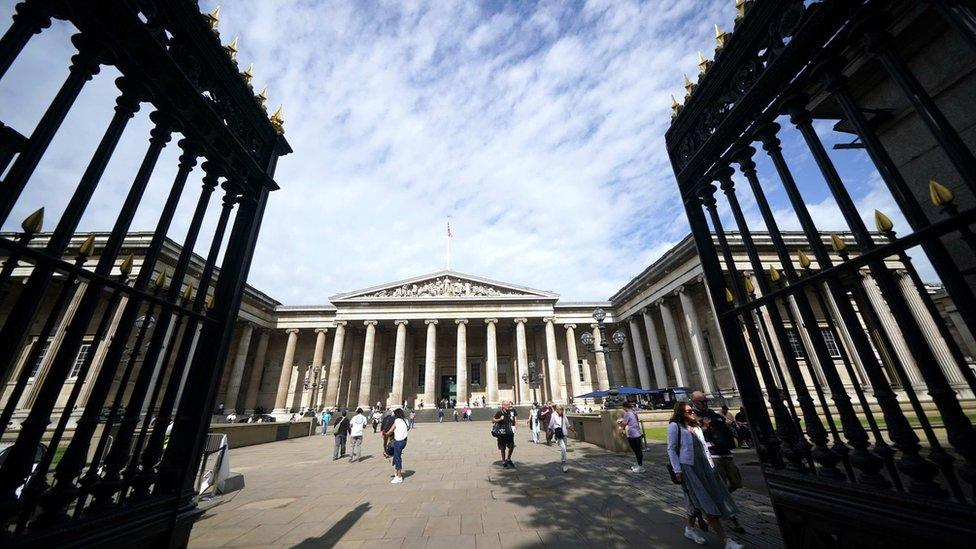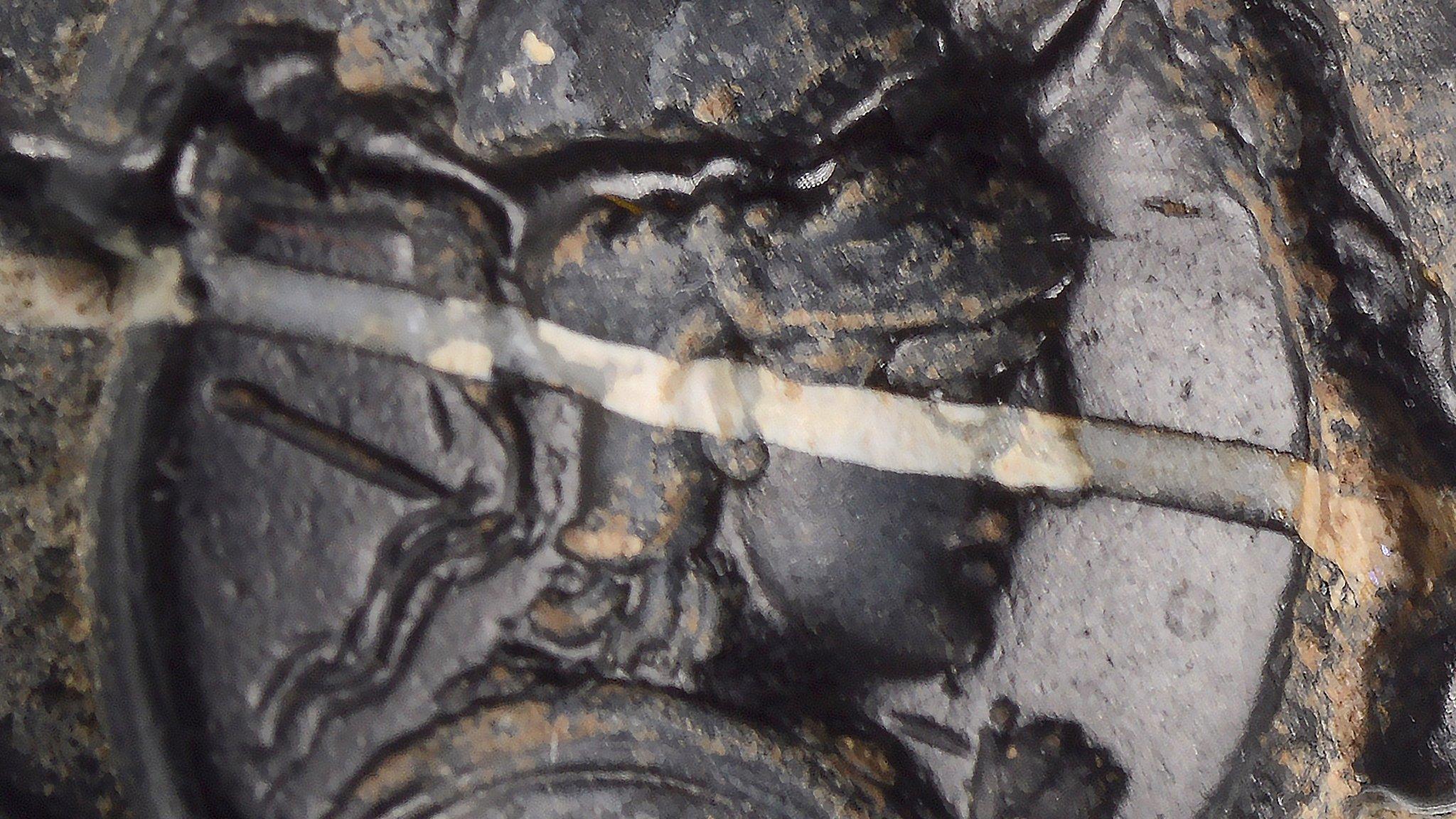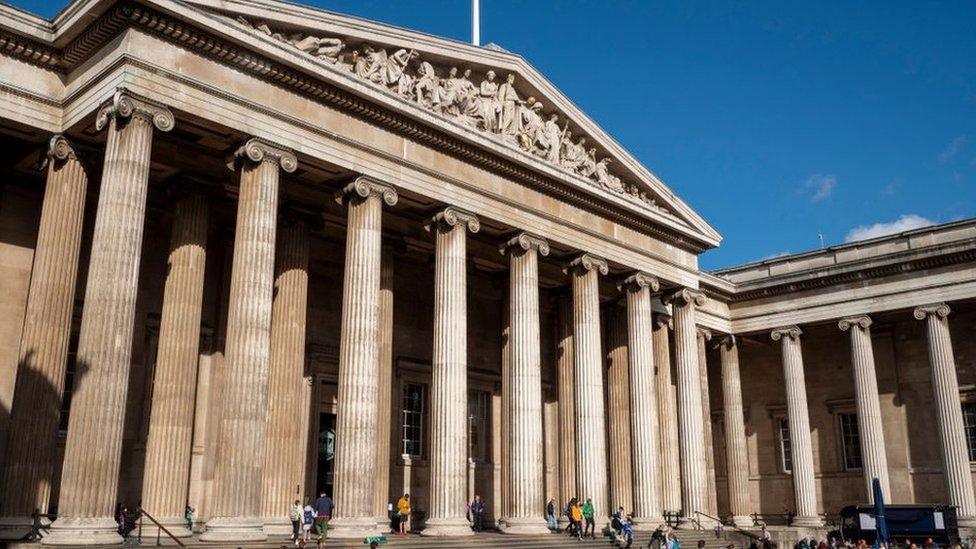Thief sold stolen gems to at least 45 buyers on eBay, British Museum says
- Published

The British Museum has launched proceedings against a former staff member who they believe stole and damaged at least 1,800 of its items.
The High Court has ordered the disclosure of eBay and PayPal records from the eBay account of the suspect, former curator Dr Peter Higgs.
The museum says these records contain evidence of its items being sold online.
The court was told Dr Higgs intended to dispute the claims.
He was too unwell to attend the proceedings but the court was told he was aware of the hearing.
The museum told the court they now have evidence Dr Higgs was selling items from the collection for over 10 years, to at least 45 buyers from all around the world, and covered his tracks "using false names, creating false documents and manipulating records".
The court has also ordered Dr Higgs to share any information he has on what was sold from the collection and the items' whereabouts.
Missing and stolen gems
The museum says many of the missing and stolen items came from unregistered collections held in storage, which had no individual record in any of the museum's catalogues.
The museum's legal representatives, Daniel Burgess and Warren Fitt, told the court how a 1993 audit of a storeroom showed that there were 1,449 unregistered items present, but during another audit in 2023, 1,161 - just over 80% of those items - were missing from the same storeroom.
Dr Higgs worked within the museum's department of Greece and Rome from 1999 until the summer of 2023 and has denied all the claims.
He was promoted to acting keeper of the department in January 2021, a position described by Mr Burgess as a "very senior and prestigious position".
The cameo
The museum highlighted one example of an item listed by Dr Higgs on eBay, and subsequently removed, where they felt the evidence linking him to the item was particularly strong.
In this instance, a cameo fragment that was registered as belonging to the museum, had been advertised on eBay on Dr Higgs' eBay account before being removed from sale a few hours later.
The museum told the court their evidence showed that Dr Higgs had altered the Museum's record of the item on the same day so that a picture taken of it no longer appeared next to its catalogue entry.
The museum's legal representative, Mr Burgess, told the court that 356 stolen items have been returned to the museum to date and that any more information could assist in the recovery of missing items.
Altering records
In 2021, Mr Burgess said the museum believes Dr Higgs tried to cover his tracks in the museum after he was alerted to suspicions about him.
Dr Higgs was acting head of the department of Greece and Rome at that time.
The suspect edited at least 83 digital internal records which related to stolen, damaged or missing items, the court heard.
The court was told that the Metropolitan Police searched the suspect's home in August 2023 and seized a collection of ancient bronze coins and medals which the museum says matches a collection of registered and unregistered coins kept in the museum's Greek and Roman department. The museum said Dr Higgs had denied this to them, claiming the coins and medals came from a deceased relative, the court heard.
The police also seized handwritten notes and printed instructions on how to edit the museum's records.
In her judgement, Justice Williams granted the British Museum's request for Dr Higgs to be ordered to disclose information surrounding items taken from the collection and their whereabouts, alongside their request for the disclosure of his eBay and PayPal records.
Related topics
- Published14 February 2024

- Published13 December 2023

- Published18 October 2023
